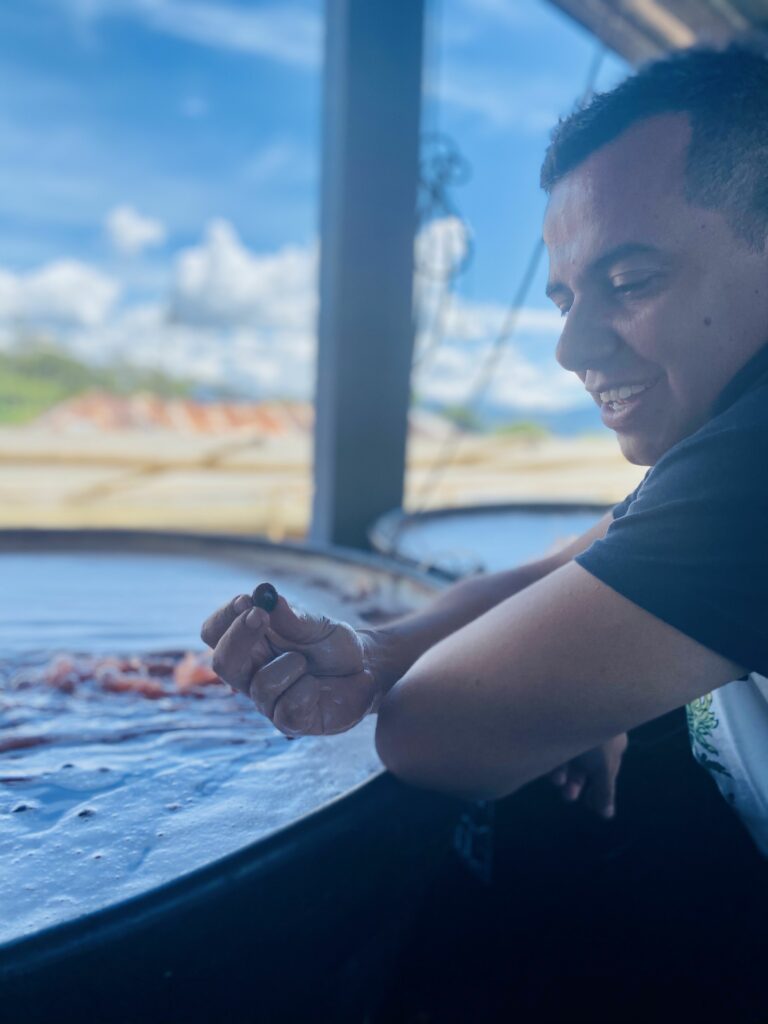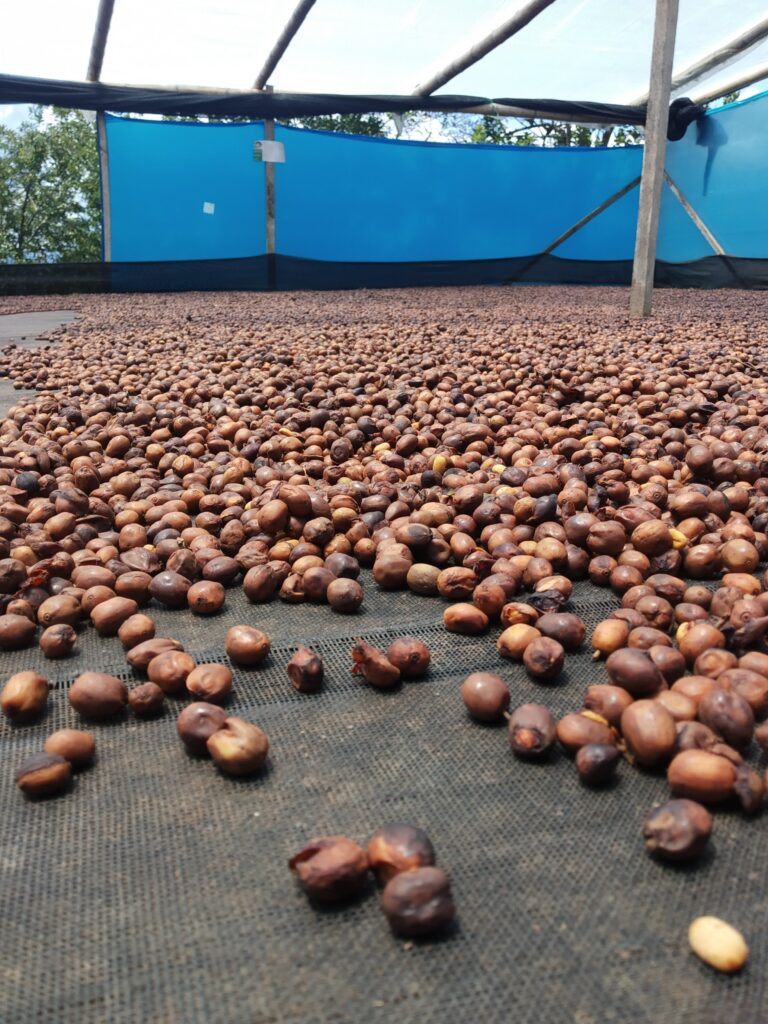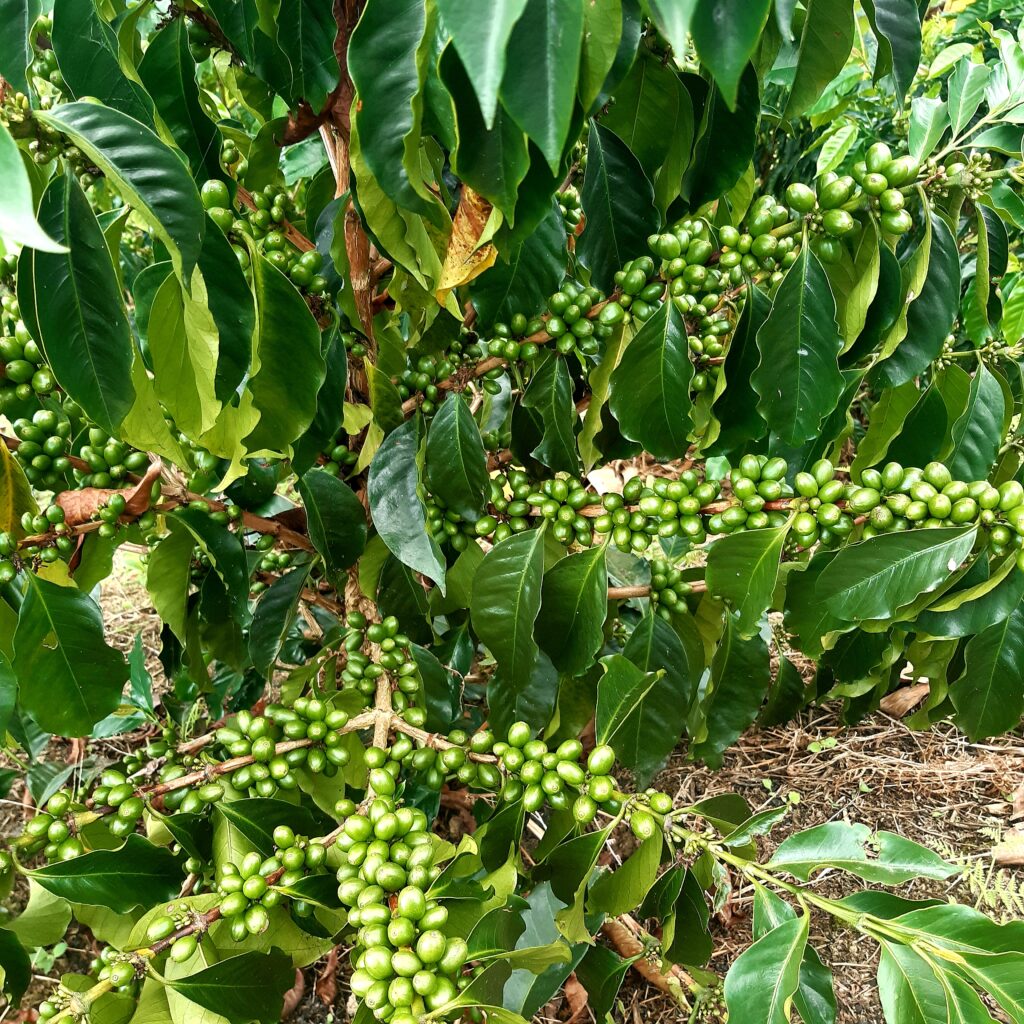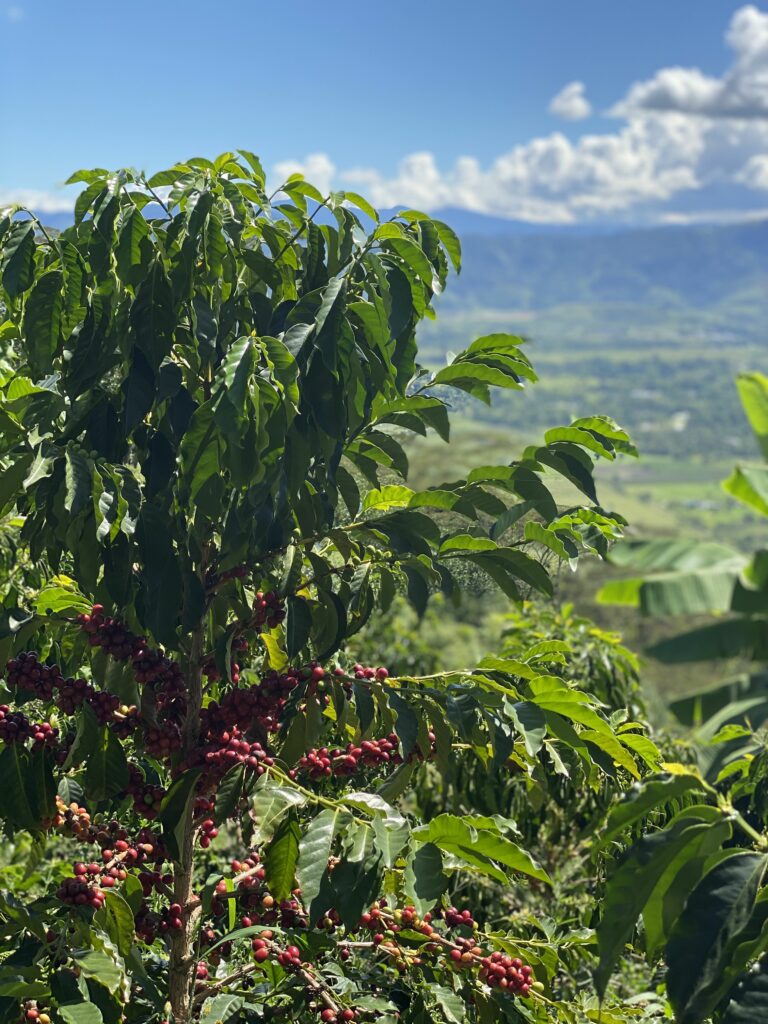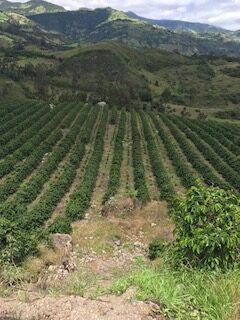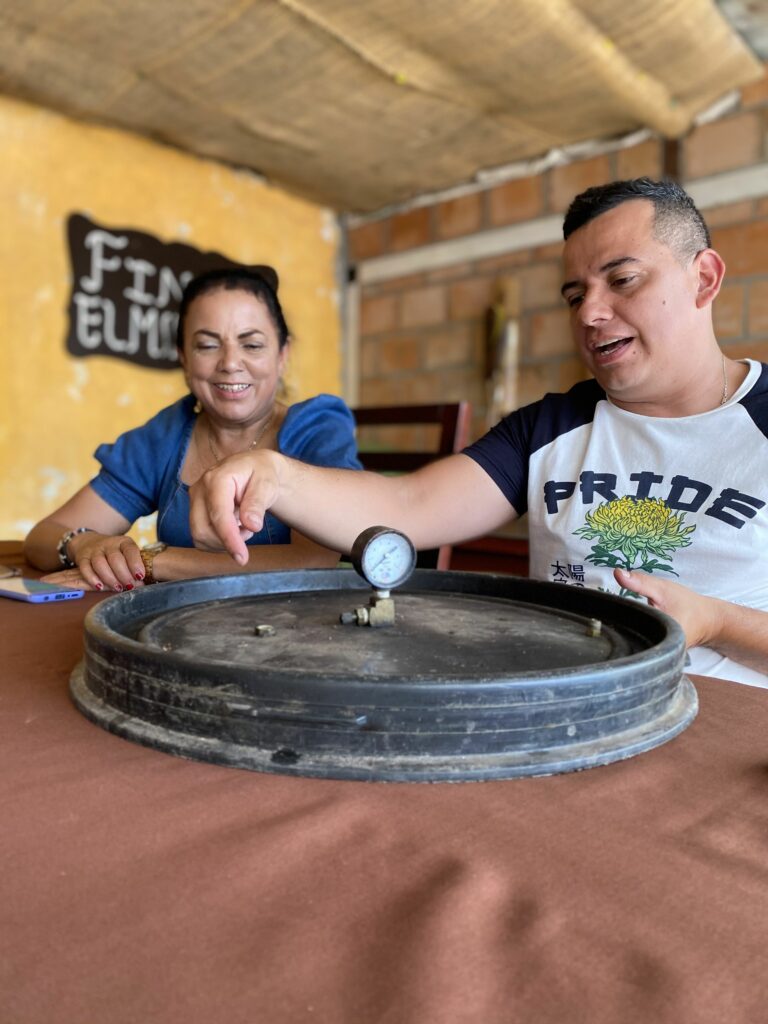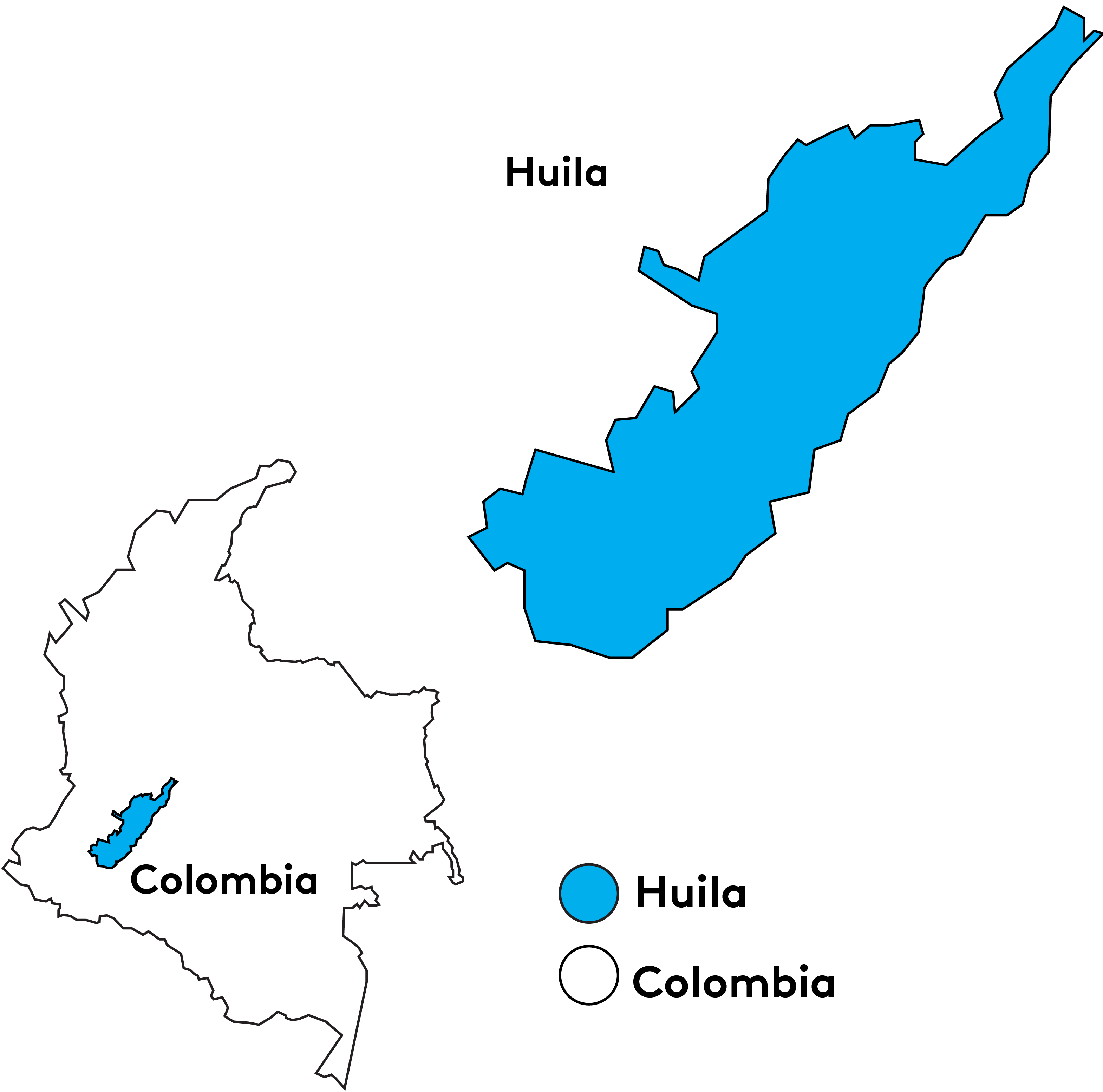Located in the town of Pitalito in Huila, Colombia, El Mirador is a 32-hectare farm with 30 hectares of coffee. The farm includes a broad collection of varieties like Catiope, Mokka, Tabi, and Gesha, as well as three different Bourbon strains including Orange, Striped, and Pink Bourbon. Caturra is a core variety for the farm as well, making it a staple for volume lots.
Elkin Guzman, the owner of El Mirador, has been surrounded by coffee since he was born. His family has always been involved in coffee cultivation, trading, or retail. Collectively, his family has celebrated over 70 years in coffee now, with 12 years of research devoted to post-harvest processing techniques. All of this research and experience has brought Elkin to utilize multiple processing techniques depending on the individual lot of coffee, including Coffee Maceration, Lactic and Acetic Natural processes, and Natural Hydro Honey.
Harvest and post-harvest procedures are highly standardized for consistency and quality. First, the sugar content of the coffee cherries is measured in degrees Brix, followed by density and volumetric separation. Finally, the decision is made on which processing method is best suited to bring each lot to its fullest potential. The processing methods used by Elkin embody his pioneering spirit, combining different approaches to fermentation and drying techniques to complement each coffee’s inherent characteristics. In the case of this lot of Catiope coffee, the team at El Mirador chose a special Washed processing method that they call Pink Champagne. Catiope is a variety that Elkin came across during a visit to an experimental station operated by Cenicafé in Timbio, Cauca, Colombia. They told him that the cultivar was a result of crossing Caturra with Lineas Etiopes, hence the name. After planting it on his farm Elkin fell in love with the variety for its production and cup quality.
The Pink Champagne Washed process begins with selecting cherries that have measured above 20 degrees Brix. The coffee is first sorted by floating the cherries in water to remove defects, which is followed by hand sorting to remove dark and overripe fruit. The cherries are then depulped and macerated with a culture that has been fermented with spices and fruits; the pulped coffee and this culture are fermented in air-tight plastic tanks for 140 hours and both Brix and pH are measured regularly. After being fermented, the coffee is dried for 25–30 days before being milled and prepped for export.
